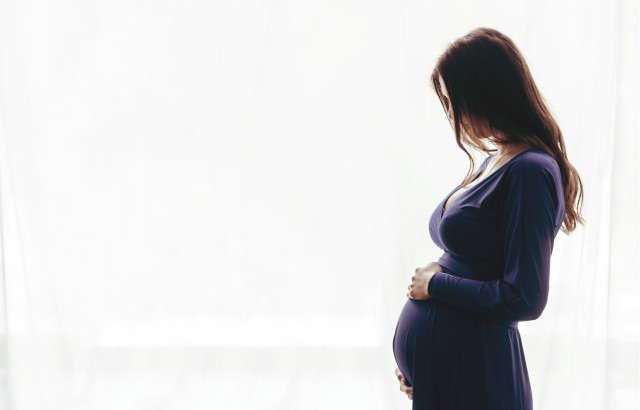
Heart attack risk decreased in new mothers by self-monitoring blood pressure at home



Self-monitoring blood pressure after giving birth could help to cut new mothers’ risk of future heart disease and strokes, according to research we've funded. The findings could be the first step towards blood pressure self-monitoring becoming routinely recommended for women who have high blood pressure during pregnancy, to prevent future health problems.

The research is published today in the Journal of American Medical Association (JAMA) and presented at the American Heart Association’s Scientific Sessions in Philadelphia.
Worldwide, around 10 per cent of pregnancies are affected by a dangerous increase in blood pressure (a hypertensive pregnancy). Around a third of women who experience a hypertensive pregnancy will go on to start treatment for high blood pressure within 10 years, and they have a significantly higher long-term risk of heart attack, stroke and heart failure.
Largest trial of its kind
In the largest trial of its kind, researchers have found that taking daily blood pressure readings at home and personalising medication doses in the weeks after giving birth, improves blood pressure control for the first year after a hypertensive pregnancy. While further research is needed to see if these changes are maintained long-term, the researchers hope that self-monitoring blood pressure will reduce future risk of strokes and heart attacks for women who develop high blood pressure during pregnancy.
In the study, led by Dr Jamie Kitt and Professor Paul Leeson at the University of Oxford, 220 new mothers who had developed high blood pressure during pregnancy were treated with either blood pressure self-monitoring at home, or usual care. Those in the self-monitoring group took their blood pressure every day and entered their readings into a smartphone app. They then received advice based on their reading to either reduce, maintain or increase their dose of blood pressure-lowering medication.
Those in the usual care group had a blood pressure review with a community midwife around 10 days after giving birth, and a review at six to eight weeks with their GP. All of the women in the study were followed up for nine months after giving birth.
Becki developed high blood pressure while she was pregnant with her daughter Remi. She told us about her experience and what taking part in this study meant to her.
Around eight months after giving birth, average blood pressure in the self-monitoring group was lower than in the usual care group; 126/82mmHg compared to 131/86 mmHg, respectively. Most of the self-monitoring group had stopped taking their blood pressure lowering medication by this stage.
The researchers say that reducing blood pressure by as little as 5mmHg, as seen in this study, can delay the development of high blood pressure by many years. Over a lifetime this can also reduce the risk of heart attacks by 20 per cent, and strokes by 40 per cent.
In addition, just eight of those in the self-monitoring group had a hospital re-admission related to high blood pressure in the two weeks following discharge, compared to 29 in the usual care group, suggesting that this approach could also help to relieve pressure on NHS care.
A larger trial is set to begin next year to assess how best to deliver blood pressure self-monitoring to more women after a hypertensive pregnancy across the NHS.
"Encouraging findings"
Dr Sonya Babu-Narayan, our Associate Medical Director and consultant cardiologist said: “High blood pressure during pregnancy is a known risk factor for future heart attacks and strokes, but shockingly many women don't get told this at the time or aren't asked about it at health checks later in life.
"This study shows that empowering women with the right knowledge, tools and medical support after a hypertensive pregnancy leads to better blood pressure. These encouraging findings suggest self-monitoring blood pressure could even stop future heart attacks and strokes, and we look forward to understanding how this approach could benefit women in the long-term."
This research was also supported by the National Institute for Health and Care Research (NIHR).

